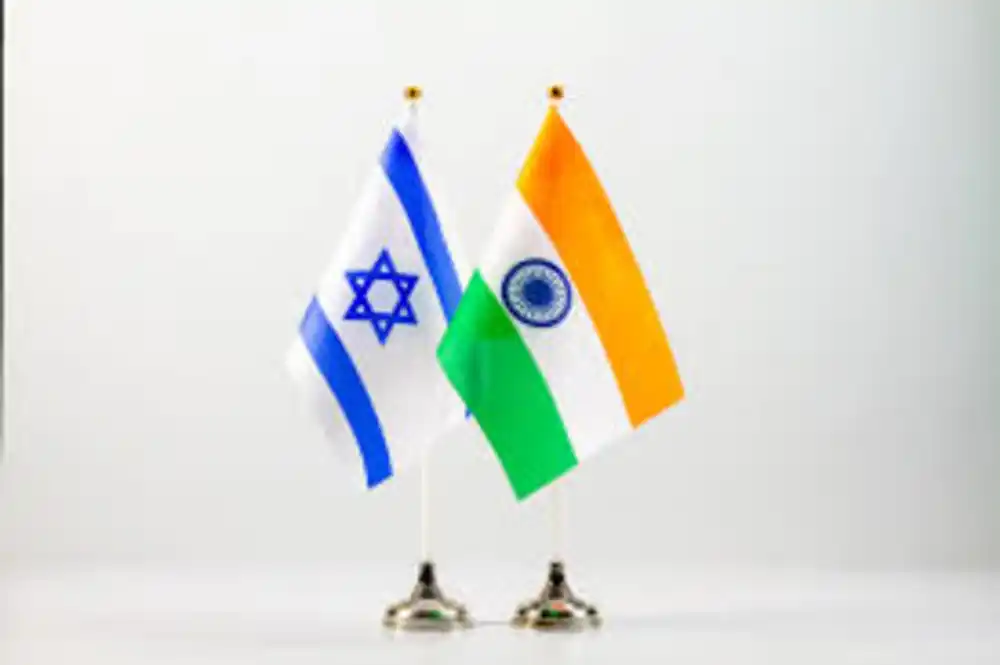
This website uses cookies to ensure you get the best experience on our website.

In a landmark development, India and Israel have officially agreed to begin negotiations for a Free Trade Agreement (FTA), signaling a new chapter in bilateral economic cooperation. Commerce and Industry Minister Piyush Goyal and Israel’s Economy and Industry Minister Nir Barkat recently signed the Terms of Reference (ToR) in Tel Aviv, laying the groundwork for what could become a comprehensive trade pact. Business Standard+2NDTV+2
For PapaExport, a leading Indian exporter of premium textiles — especially in cotton bedding and bath linen — this announcement brings immense promise. As India ramps up its export ambitions, the FTA may offer PapaExport and its clients smoother access to the Israeli market, with reduced tariffs, fewer non-tariff barriers, and streamlined customs procedures. According to the signed ToR, both countries are aiming to facilitate trade in goods and services, investment, and innovation transfer
Minister Goyal has described the FTA process as “win-win, fair, and equitable” for both India and Israel. This optimism is echoed by Minister Barkat, who has underlined the complementarities between the two economies — India’s manufacturing scale and Israel’s innovation capabilities.The FTA is expected to touch strategic sectors such as agriculture, high-tech manufacturing, water technologies, digital services, and clean energy.
PapaExport, which specializes in premium cotton home textiles, stands to gain in several ways:
Market Access: Reduction in tariffs could make PapaExport’s products more price competitive in Israel, especially in categories like bedding, towels, and luxury linen.
Investment and Innovation: The ToR also emphasizes “innovation and technology transfer.” This could support PapaExport’s ambitions to adopt more advanced manufacturing techniques, or collaborate with Israeli firms in fabric tech, eco-dyes, or smart textiles.
Trade Facilitation: Easier customs processes and reduced non-tariff barriers will help PapaExport improve its supply chain efficiency, reducing lead times and logistical costs.
While the FTA talks bring promise, they are not without challenges. Both sides will have to negotiate sensitive sectors, and the devil lies in the details. But for PapaExport, the risk-reward equation seems favorable:
The formal ToR sets a clear mandate for negotiations: not just goods, but services and investment, which opens up possibilities beyond exports.
By aligning its product strategy (for example, focusing on higher value home textiles) with the FTA’s likely outcomes, PapaExport can position itself as a key Indian supplier to the Israeli market as trade barriers drop.
PapaExport can also leverage this moment to deepen collaboration with Israeli business communities — especially in innovation areas like sustainable textile production.
As PapaExport eyes growth in the international market, the India–Israel FTA can serve as a powerful lever. The company can:
Expand its export portfolio to Israel, targeting both institutional buyers (hotels, spas) and retail outlets in Israel.
Develop co-branded or private-label linen products for the Israeli market, tapping into Israel’s demand for high-quality cotton home textiles.
Explore joint R&D ventures with Israeli innovation firms in newer textile technologies, such as smart fabrics, water-efficient dyeing, or biotech-enhanced fibers.
By staying ahead of the FTA negotiations and proactively aligning its business strategy, PapaExport can not only boost its exports but also strengthen its role as a long-term partner in India–Israel trade.
The official launch of India–Israel FTA talks, through the signing of the Terms of Reference, represents a watershed moment. For PapaExport, this is more than just a macroeconomic development — it's a concrete opportunity to expand its footprint in Israel, reduce trade friction, and leverage technology and investment flows.
As the negotiations progress, PapaExport should remain agile, engage with trade bodies, and refine its market entry strategy into Israel. The FTA, if successfully concluded, could open a new horizon of growth, turning strategic intent into long-term commercial gains.
